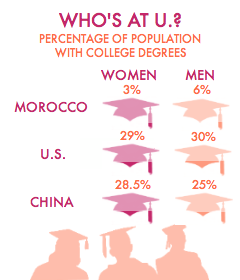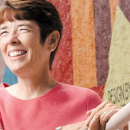
December 26, 2012 | Health and Well-Being, Economic Opportunity
Homelessness is Not Hopelessness
Sister Mary Scullion

And homelessness is not forever. Just ask Sister Mary Scullion of Philadelphia, who decreased the number of people living on that city’s streets from 2,000 to 200. Her work has brought her international acclaim—she was on the Time 100 list in 2009—and fans like former President Bill Clinton.
In 1985 Sister Mary helped start Women of Hope, two transitional residences for homeless women living with chronic mental illness. In 1990, she left Women of Hope and co-founded Project H.O.M.E., a broader program—it includes permanent housing—that empowers men and women to break the cycle of homelessness.
What made you decide to work with the homeless?
When I first entered the Sisters of Mercy, I had the opportunity to work at St. John’s Hospice. This was the late 1970s, and for the first time, there were women at the back of the line for their meal. They really engaged my mind, heart and my spirit.
What do you see as Project H.OM.E.’s greatest achievement?
Besides empowering thousands of men and women to break the cycle of chronic homelessness, we have helped revitalize the Diamond Street and St. Elizabeth’s neighborhoods with home ownership, workforce development, and education programs. We are now seeing dozens of kids from those neighborhoods succeeding in college. We have leveraged over $100 million of investment in the Philadelphia area. And we have nurtured a community of tens of thousands of people from all walks of life who want to be part of the solution to ending homelessness and poverty.
How has the recession changed things?
We have seen the numbers of persons coming into our outreach center increase, though that is as much due to cuts in social services, such as the state General Assistance program, as it is to the recession.
Many of the homeless are mentally ill. What are their special needs?
Obviously, they need appropriate services to treat chronic mental illness, but essentially their basic needs are the same as anyone else: safe, decent housing; access to quality health care; opportunities for education and employment. In addition, we all need to overcome the long-standing myths and stigmas surrounding mental illness. The reality is that most persons who live with mental illness are empowered persons who know their own dignity and live full and productive lives.
Tell us about Georgianna Simmons; she was an inspiration to you, right?
She was a wonderful woman who lived on the street for many years before coming to Women of Hope. She was fearless, loving, filled with a passion for life, and she was an outspoken advocate for people who were homeless.
How is Tanisha Clanton doing? She’s a young woman who was homeless for the first 10 years of her life.
Tanisha is living out the goals she set for herself many years ago: She has her bachelor’s degree from Albright University and she is working in a community center teaching art to young people, helping them to tap their own creativity and gifts. She is wonderful with people, especially children. She possesses a keen intellect and wonderful artistic talent.
What advice would you give to young women who want to make a difference in the world?
Nurture your interests and your deepest passions by finding experiences and venues that express those passions. It is also important to build relationships and community –find people you admire and join with them and learn from them.
What gives you cause for optimism?
I find hope in the men and women who have struggled with homelessness, addiction, and mental illness, who persevere courageously, and find ways to contribute their gifts to the broader community. I also find hope in the amazing people from all walks of life who care about human dignity and want to make a different, who want to make this a better society for all people.
How do you recharge your batteries?
I take time off to be with good friends. And I take time to focus on deepening my spirituality, which I need on a daily basis. I also like to run.